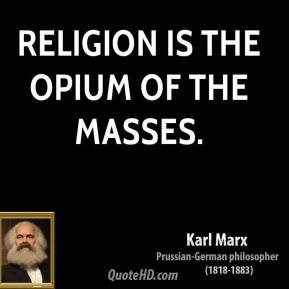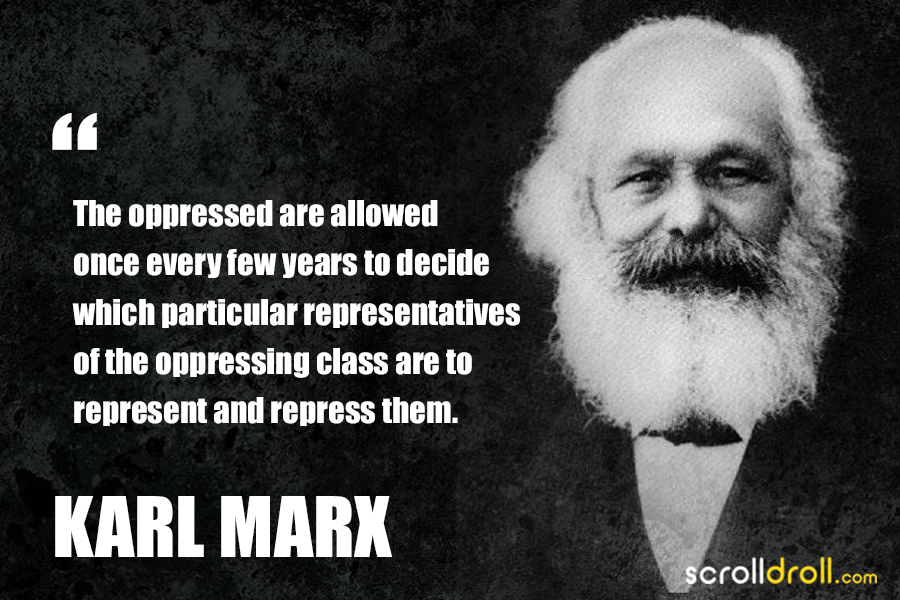

Use-value is thus intrinsically related and dependent upon exchange-value. What is especially important to extract from this preliminary definition of use-value is the claim that “se-values become a reality only by use or consumption.” More simply put, the utility, or use-value, of a commodity cannot be fully realized or assessed until the object itself has entered into a system of exchange. Use-values become a reality only by use or consumption: they also constitute the substance of all wealth, whatever may be the social form of that wealth. This property of a commodity is independent of the amount of labour required to appropriate its useful qualities. A commodity, such as iron, corn, or a diamond, is therefore, so far as it is a material thing, a use-value, something useful. Being limited by the physical properties of the commodity, it has no existence apart from that commodity. The utility of a thing makes it a use-value. Consequently, use-value is defined in the following terms:

The diversity of production necessarily yields diverse modes of use, and it is therefore the “work of history” to identify the various modes of use as well as the social standards by which those uses are assessed. (See also Globalism and Transnationalism, The Spice Trade in India, Communism in India) Commodity and Use-ValueĪccording to Marx, “very useful thing, as iron, paper, &c., may be looked at from the two points of view of quality and quantity” (Marx 45). With this in mind, Marx continues his discussion of commodity by defining use-value and exchange-value. More important, however, is that the bourgeois, in possessing the capital, maintains control over the use and exchange of those commodities. The boss who possesses wealth and commodities, is, for Marx, the embodiment of the bourgeois and the worker thus becomes the embodiment of the proletariat. This simple, yet crucial fact turns the object into merchandise, or a commodity. fabric, shoes, plastic, houses, etc.) that, despite the investment of their personal labor, remains as the boss’s property. More simply put, a worker produces an object (i.e. Neither are we here concerned to know how the object satisfies these wants, whether directly as means of subsistence, or indirectly as means of production” (Marx 45). The nature of such wants, whether, for instance, they spring from the stomach or from fancy, makes no difference. “A commodity is, in the first place, an object outside of us, a thing that by its properties satisfies human wants of some sort or another. Marx therefore initiates his critique of capitalism by defining commodity as the following: As analysis will demonstrate, the idea of commodity itself becomes the framework through which the larger concept of capitalism may be accessed and understood. Commodities, Marx begins his investigation of societies and their wealth with an analysis of commodities. Fortunately, he completed enough of his great work to provide us with the concept of commodity. Sadly enough, Marx died on March 14th, 1883, at his desk, and managed to finish only the first of his three intended volumes. Still plagued with the questions of class struggle and notions of capitalism, Marx spent the last 25 years of his life writing his major work Das Kapital: Kritik der politischen Oekonomie, or Capital for those of us who do not speak German.

A few years later Marx became friends with Frederick Engles (1820-1895), and together they wrote famous documents such as the Communist Manifesto. This notion, along with Hegel’s The Philosophy of History, which posits that the progress of history is the direct result of the “struggle of the oppressed against the oppressors,” became the source of great inspiration for young Marx (Rius 21). Turning to Frederick Hegel (1770-1831), Marx studied his philosophy and came upon the idea that “eason is constantly evolving in history towards an absolute goal” (Rius 20). Educated at Bonn University and the University of Berlin, Marx found himself submerged in the timeless question of the meaning and purpose of life. The son of a lawyer, Marx was born on the 5th of May 1818 in Trevirorum, West Germany (known as Trier today). With that said, let us begin with a brief introduction to the man Karl Marx. Furthermore, this page should not be mistaken for a complete summation of Marx’s writings on the commodity, but rather a basic definition and introduction to the concept of commodity. This particular page is aimed at providing a framework through which one may begin to critically engage in Marx’s notion of the commodity. Before we begin our adventure through Karl Marx and his complex idea of commodity, the purpose and intent of this web page should be noted.


 0 kommentar(er)
0 kommentar(er)
